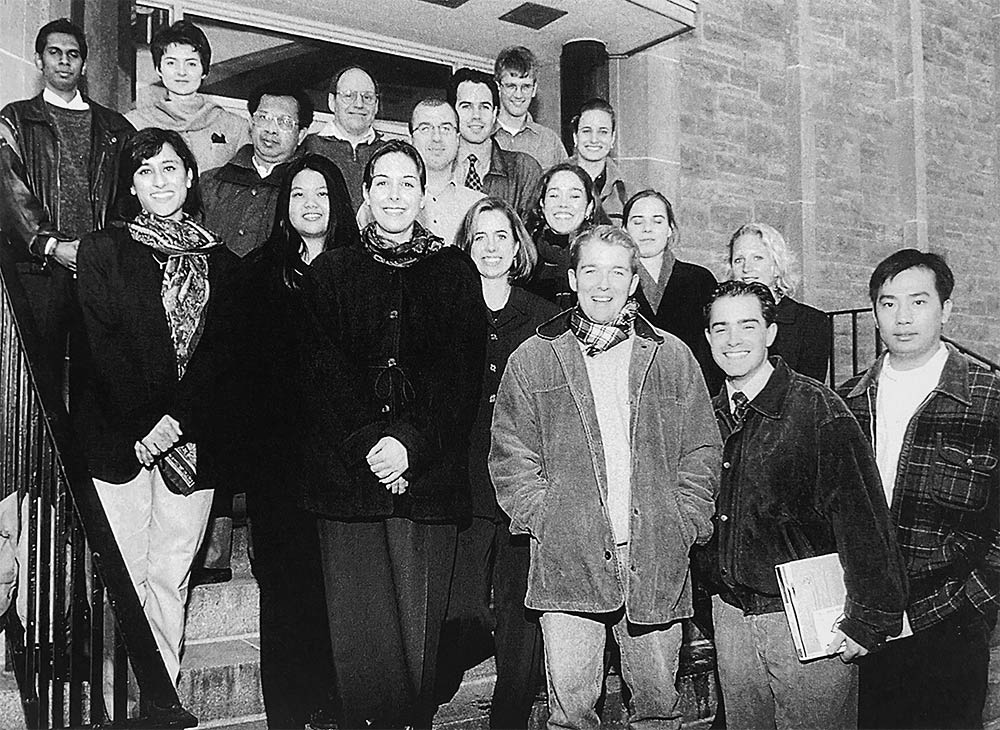Science masters

The first MSc class stands outside Dunning Hall in 1998
When Nick Turner, BCom’96, MSc’98, Artsci’97, finished his undergrad, he wasn’t sure what to do next. Unlike many Commerce classmates, he had no desire to work in consulting or high finance. But thanks to psychology and organizational behaviour courses he took, he was interested in what made leaders tick. So when he found out about a new 12-month graduate degree at Smith that would let him pursue that area of study, he immediately applied.
That program was the Master of Science in Management. This year marks the MSc’s 25th anniversary.
Turner was in the inaugural class. He credits the program’s research rigour for helping launch his career. After graduation, he went to Sheffield University in England to earn a doctorate in psychology. Today, he is a professor of organizational behaviour at Haskayne School of Business at the University of Calgary and an expert on healthy work. The MSc, he says “gave me a grounding in how to do research. It showed me where to look.”
The MSc is unique in the university world: a one-year graduate business degree that’s research-intensive and provides a solid grounding in the science of management—unlike more practice-focused MBAs. At its launch, few similar options existed in Canada.
Professor Julian Barling, who helped create the MSc and was its first program chair, says the MSc creates a path for undergraduates to pursue academia. “It has allowed many students to realize their dreams.” Indeed, grads have gone on to earn PhDs at universities such as Harvard, Duke, Northwestern, Arizona State and London Business School, and professorial careers at LBS, Michigan State and the University of Maryland.
The MSc remains as relevant today as when it started. Maybe more so. That’s because, in a big-data world, companies need people who can analyze complex information and answer tough questions. Just like a researcher. Lynnette Purda associate dean (graduate programs) says industry job opportunities for MSc grads are increasing.
Vivien Wong, MSc’10, thought she might move into academia but pursued business instead. Today, she is assistant vice-president of strategy, global data technology, at Manulife in Toronto. In addition to research skills, she says the program made her a better communicator. Researchers, she notes, have to write a lot and make clear, concise arguments backed by facts. “The program taught me to not act at the surface level but to think deeper,” she says. “And that has real-world applications.”
